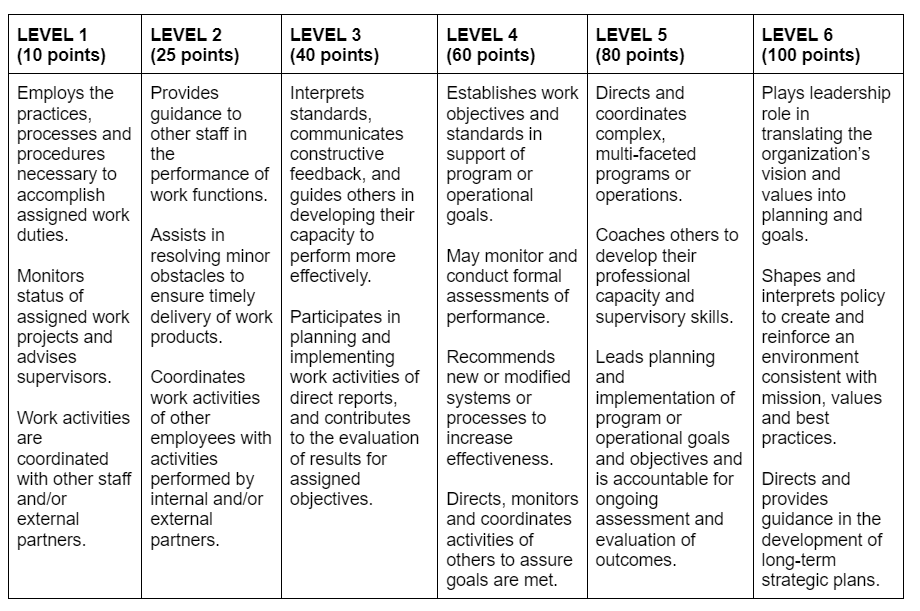Public vs. Private Sector Compensation Comparison
Federal employees are entitled to specific benefits packages while their private sector counterparts are generally at the discretion of the employer. This makes it critical for employers to understand public vs. private compensation differences.
However, even in the public sector compensation varies. For instance, federal government employees generally receive more benefits than private sector employees. Yet, total compensation for public state employees is on average 6.8% less than in the private sector.
| “With so many nuances across both sectors, the right compensation consultant can make all the difference for your organization’s compensation strategy.” – Larry Beers, Director of Consulting, JER HR |
We will discuss many high-level differences between private and public sector compensation, but we encourage you to research your local standards and consult an expert to learn about your precise requirements.
What Constitutes Public Sector vs. Private Sector Jobs?
Public sector jobs are positions within government entities at various levels: federal, state, and local. These jobs are funded by taxpayers’ dollars and provide services to the public. Examples include police officers, public school teachers, and EPA agents.
Comparatively, private sector jobs are those offered by businesses or organizations that are privately owned or not affiliated with the government. These jobs are primarily funded by the organization’s profits, investments, or private funding sources.
What’s The Difference Between Public vs. Private Sector Compensation?
The difference between public and private sector compensation boils down to their fundamental goals and where the money comes from. Because public sector jobs are paid by taxpayers’ dollars, total compensation funding is more standardized.
On the other hand, the goal of most private companies is to make a profit. Therefore, they can offer more varied pay structures, including performance-based incentives that might lead to higher earnings.
| What Else Do You Need to Know About Compensation? |
Other Factors That Influence Compensation
Whether you’re dealing with public vs. private sector employment is one of many factors that you must consider while determining your compensation strategy. Here are a few other considerations.
Job Roles & Responsibilities
The nature of an employee’s job and its associated responsibilities are fundamental factors influencing their total compensation, regardless of whether they work in the public or private sector. In most cases, job descriptions and job hierarchy are the primary determining factors.
However, many large organizations draw a point-based compensation matrix to specify appropriate compensation packages. Here is an example of such a matrix.

Supply & Demand for Specific Roles
Roles that require specialized skills or expertise tend to command higher compensation when there is a limited supply of qualified professionals. For example, in the healthcare sector, specialized surgeons, such as neurosurgeons, earn substantially higher salaries.
This may also be affected by geographic location. For instance, high-demand roles in regions with a higher cost of living, such as technology jobs in Silicon Valley, typically come with higher salaries.
Economic Conditions
Economic conditions at the state, national, and global levels also impact compensation. During periods of economic growth, companies may offer more competitive salaries to attract and retain talent. Conversely, economic downturns may lead to wage stagnation or reductions in compensation.
Required Compensation for Private vs. Public Employees
Some compensation offers are required for anyone who works in a public sector job. There is usually more flexibility in which compensation packages you may offer in the private sector. However, some compensation benefits are required by U.S. labor laws regardless of if they are in the public or private sector.
Please note that some public sector requirements may vary based on your state or locality. The ones in this table are general.
| Public Sector Requirement | Private Sector Requirement | U.S. Labor Law Requirement for All Sectors | |
| Salary Structures | Public sector positions must have reasonably competitive salaries but earnings are often capped. | Private sector jobs often have the potential to pay more than public jobs, characterized by performance-based career growth. | The Fair Labor Standards Act (FLSA) governs minimum wage and overtime. |
| Benefits & Perks | Comprehensive health insurance, retirement plans, separate vacation and sick days, paid federal holidays. | Primarily at the discretion of the employer, should be reasonably competitive based on others in your industry. | Certain benefits like health insurance are mandated under laws like the Affordable Care Act. |
| Job Security & Stability | Public-sector jobs must provide more stability and regular work hours. | Hours and security mostly at discretion of employer and regular industry standards. | No specific laws governing job security and stability as a whole. However, laws like the Worker Adjustment and Retraining Notification (WARN) Act provide some protections. |
| Career Advancement Opportunities | Predefined criteria for when salary increases must occur. | Performance and seniority-based career growth. | Title VII of the Civil Rights Act of 1964 prohibits discrimination in employment decisions, including promotions. |
| Work-Life Balance | Set work hours and required separate sick and vacation days. All federal holidays must be paid time off. | Work hours and paid time off at discretion of employer within reason of The Fair Labor Standards Act (FLSA). | The Fair Labor Standards Act (FLSA) governs working hours and overtime regulations. |
| Union Influence & Collective Bargaining | Stronger influence due to the presence of public sector unions. | Varies by industry and company. Some private sectors have strong unions, while others have minimal union presence. | The National Labor Relations Act (NLRA) governs collective bargaining rights and practices for both public and private sectors. |
Regulations & Oversight Affecting Public Sector Employment Compensation
Public sector employment compensation is subject to stringent regulations and oversight. These measures aim to ensure transparency, fairness, and accountability in the use of taxpayer funds and public resources. Here are some of the regulations you should be aware of.
Civil Service Regulations
Civil service systems exist at the federal, state, and local levels in the United States. These regulations establish a framework for hiring, promotion, and compensation in the public sector. They aim to promote merit-based hiring, protect against discrimination, and ensure fair treatment for public sector employees.
Pay Equity Laws
Pay equity laws address wage disparities based on gender, race, and other protected identities. Public sector organizations must comply with these laws to ensure that compensation is provided on a nondiscriminatory basis.
Collective Bargaining Agreements
Many public sector employees are unionized and engage in collective bargaining to negotiate compensation and benefits. These agreements outline the terms and conditions of employment, including salary scales, working hours, and benefits.
Budget
Public sector compensation is influenced by government budgets. Compensation packages must align with available resources and fiscal responsibility to prevent overspending and maintain public trust.
Executive Compensation Limits
At the federal level, there are often restrictions on executive compensation for high-ranking government officials. These limits help control excessive salaries for top positions within government agencies.
Public Disclosure Requirements
Transparency is a cornerstone of public sector compensation. Governments are typically required to disclose the salaries of top officials and, in some cases, all government employees. This transparency helps the public understand how taxpayer funds are allocated.
Legislative Oversight
Elected officials and legislative bodies at various government levels have a role in overseeing public sector compensation. They may establish compensation standards, review budgets, and enact laws that affect government employee compensation.
| Watch Our In-Depth Online Webinar For a Detailed Look at Compensation |
Trust One Experienced HR Firm For Public and Private Sector Compensation Consulting
JER HR Group brings over 35 years of experience in providing comprehensive compensation consulting services. We can help organizations set up effective pay structures that ensure talent attraction and retention, whether it’s public or private sector work.
Reach out to us today to get your free 3-minute assessment.
Public vs. Private Sector Compensation Comparison
Federal employees are entitled to specific benefits packages while their private sector counterparts are generally at the discretion of the employer. This makes it critical for employers to understand public vs. private compensation differences.
However, even in the public sector compensation varies. For instance, federal government employees generally receive more benefits than private sector employees. Yet, total compensation for public state employees is on average 6.8% less than in the private sector.
| “With so many nuances across both sectors, the right compensation consultant can make all the difference for your organization’s compensation strategy.” – Larry Beers, Director of Consulting, JER HR |
We will discuss many high-level differences between private and public sector compensation, but we encourage you to research your local standards and consult an expert to learn about your precise requirements.
What Constitutes Public Sector vs. Private Sector Jobs?
Public sector jobs are positions within government entities at various levels: federal, state, and local. These jobs are funded by taxpayers’ dollars and provide services to the public. Examples include police officers, public school teachers, and EPA agents.
Comparatively, private sector jobs are those offered by businesses or organizations that are privately owned or not affiliated with the government. These jobs are primarily funded by the organization’s profits, investments, or private funding sources.
What’s The Difference Between Public vs. Private Sector Compensation?
The difference between public and private sector compensation boils down to their fundamental goals and where the money comes from. Because public sector jobs are paid by taxpayers’ dollars, total compensation funding is more standardized.
On the other hand, the goal of most private companies is to make a profit. Therefore, they can offer more varied pay structures, including performance-based incentives that might lead to higher earnings.
| What Else Do You Need to Know About Compensation? |
Other Factors That Influence Compensation
Whether you’re dealing with public vs. private sector employment is one of many factors that you must consider while determining your compensation strategy. Here are a few other considerations.
Job Roles & Responsibilities
The nature of an employee’s job and its associated responsibilities are fundamental factors influencing their total compensation, regardless of whether they work in the public or private sector. In most cases, job descriptions and job hierarchy are the primary determining factors.
However, many large organizations draw a point-based compensation matrix to specify appropriate compensation packages. Here is an example of such a matrix.

Supply & Demand for Specific Roles
Roles that require specialized skills or expertise tend to command higher compensation when there is a limited supply of qualified professionals. For example, in the healthcare sector, specialized surgeons, such as neurosurgeons, earn substantially higher salaries.
This may also be affected by geographic location. For instance, high-demand roles in regions with a higher cost of living, such as technology jobs in Silicon Valley, typically come with higher salaries.
Economic Conditions
Economic conditions at the state, national, and global levels also impact compensation. During periods of economic growth, companies may offer more competitive salaries to attract and retain talent. Conversely, economic downturns may lead to wage stagnation or reductions in compensation.
Required Compensation for Private vs. Public Employees
Some compensation offers are required for anyone who works in a public sector job. There is usually more flexibility in which compensation packages you may offer in the private sector. However, some compensation benefits are required by U.S. labor laws regardless of if they are in the public or private sector.
Please note that some public sector requirements may vary based on your state or locality. The ones in this table are general.
| Public Sector Requirement | Private Sector Requirement | U.S. Labor Law Requirement for All Sectors | |
| Salary Structures | Public sector positions must have reasonably competitive salaries but earnings are often capped. | Private sector jobs often have the potential to pay more than public jobs, characterized by performance-based career growth. | The Fair Labor Standards Act (FLSA) governs minimum wage and overtime. |
| Benefits & Perks | Comprehensive health insurance, retirement plans, separate vacation and sick days, paid federal holidays. | Primarily at the discretion of the employer, should be reasonably competitive based on others in your industry. | Certain benefits like health insurance are mandated under laws like the Affordable Care Act. |
| Job Security & Stability | Public-sector jobs must provide more stability and regular work hours. | Hours and security mostly at discretion of employer and regular industry standards. | No specific laws governing job security and stability as a whole. However, laws like the Worker Adjustment and Retraining Notification (WARN) Act provide some protections. |
| Career Advancement Opportunities | Predefined criteria for when salary increases must occur. | Performance and seniority-based career growth. | Title VII of the Civil Rights Act of 1964 prohibits discrimination in employment decisions, including promotions. |
| Work-Life Balance | Set work hours and required separate sick and vacation days. All federal holidays must be paid time off. | Work hours and paid time off at discretion of employer within reason of The Fair Labor Standards Act (FLSA). | The Fair Labor Standards Act (FLSA) governs working hours and overtime regulations. |
| Union Influence & Collective Bargaining | Stronger influence due to the presence of public sector unions. | Varies by industry and company. Some private sectors have strong unions, while others have minimal union presence. | The National Labor Relations Act (NLRA) governs collective bargaining rights and practices for both public and private sectors. |
Regulations & Oversight Affecting Public Sector Employment Compensation
Public sector employment compensation is subject to stringent regulations and oversight. These measures aim to ensure transparency, fairness, and accountability in the use of taxpayer funds and public resources. Here are some of the regulations you should be aware of.
Civil Service Regulations
Civil service systems exist at the federal, state, and local levels in the United States. These regulations establish a framework for hiring, promotion, and compensation in the public sector. They aim to promote merit-based hiring, protect against discrimination, and ensure fair treatment for public sector employees.
Pay Equity Laws
Pay equity laws address wage disparities based on gender, race, and other protected identities. Public sector organizations must comply with these laws to ensure that compensation is provided on a nondiscriminatory basis.
Collective Bargaining Agreements
Many public sector employees are unionized and engage in collective bargaining to negotiate compensation and benefits. These agreements outline the terms and conditions of employment, including salary scales, working hours, and benefits.
Budget
Public sector compensation is influenced by government budgets. Compensation packages must align with available resources and fiscal responsibility to prevent overspending and maintain public trust.
Executive Compensation Limits
At the federal level, there are often restrictions on executive compensation for high-ranking government officials. These limits help control excessive salaries for top positions within government agencies.
Public Disclosure Requirements
Transparency is a cornerstone of public sector compensation. Governments are typically required to disclose the salaries of top officials and, in some cases, all government employees. This transparency helps the public understand how taxpayer funds are allocated.
Legislative Oversight
Elected officials and legislative bodies at various government levels have a role in overseeing public sector compensation. They may establish compensation standards, review budgets, and enact laws that affect government employee compensation.
| Watch Our In-Depth Online Webinar For a Detailed Look at Compensation |
Trust One Experienced HR Firm For Public and Private Sector Compensation Consulting
JER HR Group brings over 35 years of experience in providing comprehensive compensation consulting services. We can help organizations set up effective pay structures that ensure talent attraction and retention, whether it’s public or private sector work.
Reach out to us today to get your free 3-minute assessment.







